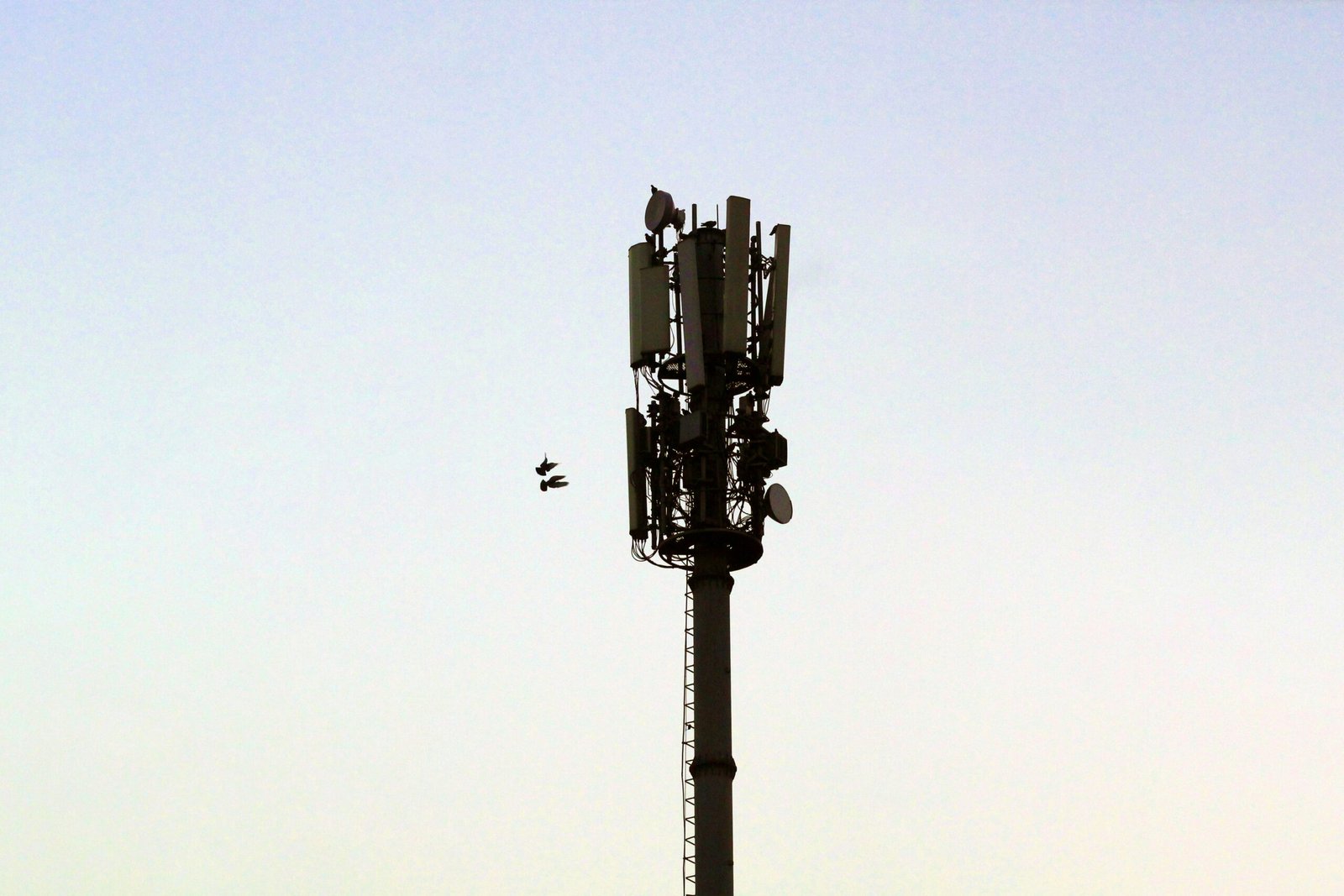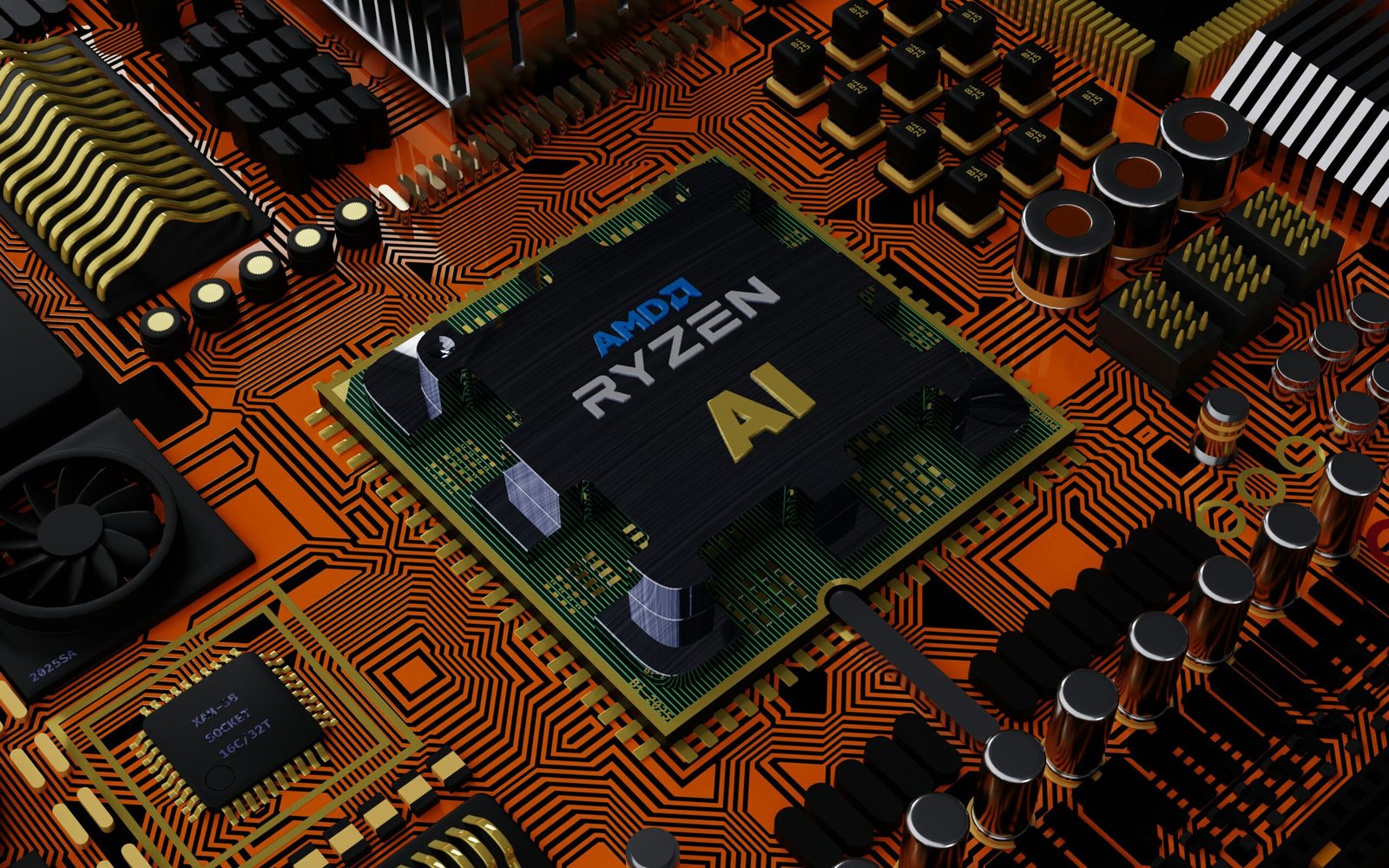How 5G is Shaping the Future of Gaming: What Gamers Need to Know
 Photo by Baatcheet Films on Unsplash
Photo by Baatcheet Films on Unsplash Introduction to 5G Technology
5G technology, standing for the fifth generation of mobile networks, marks a significant leap from its predecessors such as 4G LTE. Its core functionality revolves around delivering faster data speeds, lower latency, and enhanced connectivity, which collectively transform utility across various domains including gaming, healthcare, and autonomous driving. With respect to its predecessors, 5G offers data speeds that can reach up to 10 Gbps, a monumental improvement over 4G’s maximum of 1 Gbps. This exponential increase in bandwidth enables real-time communication and instantaneous data transfer, crucial for modern applications.
A defining feature of 5G networks is their reduced latency, which translates to the minimal delay between sending and receiving information. While 4G networks typically exhibit latencies in the range of 30-50 milliseconds, 5G technology brings it down to a remarkable 1 millisecond or less. This is particularly significant in gaming contexts, where such latency reductions can eliminate lag and deliver a smoother, more responsive gaming experience.
Another noteworthy aspect of 5G is its capacity to connect a wide array of devices simultaneously without degrading performance. This capability, enabled by advancements in network infrastructure and spectrum use, supports the concept of the Internet of Things (IoT). From a gaming standpoint, this translates to the possibility of more immersive, interconnected gaming environments and expanded multiplayer experiences without compromising on speed or performance.
The mechanics behind 5G involve the utilization of multiple frequency bands, including low, mid, and high bands (millimeter waves). These bands provide a balanced approach to coverage, capacity, and speed. High-frequency millimeter waves offer ultra-fast speeds over shorter distances, ideal for dense urban areas, while low-frequency bands provide extensive coverage, essential for widespread connectivity.
By reimagining these foundational elements, 5G stands poised to revolutionize various sectors. As this blog will further explore, gaming is one of the key areas set to benefit immensely from this technological transformation.
The advent of 5G technology is poised to revolutionize the gaming industry by delivering unprecedented speed and connectivity. One of the most significant benefits of 5G is its ability to drastically reduce latency, the delay between a player’s action and the server’s response. This ultra-low latency offers gamers real-time responsiveness, ensuring an exceptionally smooth and immersive gaming experience. Whether you’re embarking on a solo campaign or engaging in fast-paced multiplayer battles, the lag-free environment facilitated by 5G will elevate your gameplay to new heights.
Beyond mere speed, 5G also promises a considerable increase in bandwidth capacity. This expanded bandwidth is particularly transformative for multi-player games, where multiple devices are connected to a single server. Previously, network congestion often plagued online gaming, causing frustrating interruptions and delays. With 5G, a more robust and reliable connection can support dozens, if not hundreds, of players simultaneously, maintaining stable performance even during peak times. This means seamless global tournaments and expansive, richly detailed open-world environments that can accommodate vast numbers of players.
Cloud gaming, too, stands to benefit immensely from 5G’s capabilities. Services such as Google Stadia, Microsoft’s xCloud, and NVIDIA GeForce NOW rely heavily on fast, stable connections to stream games without significant latency or buffering. The enhanced speed and reliability of 5G networks enable these platforms to deliver high-definition, high-fidelity gaming experiences directly to players, regardless of their device’s hardware capabilities. This shift could democratize gaming, removing the need for expensive consoles or gaming PCs and allowing more people to access top-tier gaming experiences through their smartphones or tablets.
In essence, 5G is not merely a step up from 4G but a fundamental leap forward that will shape the future of gaming. From minimizing latency and lag to broadening bandwidth, its impact will be felt across various aspects of the gaming ecosystem, enabling richer, more interconnected, and highly responsive gaming experiences. The era of 5G is upon us, promising to elevate the way we play, interact, and engage with games on a global scale.
Enhanced Mobile Gaming Experiences
The advent of 5G technology stands to revolutionize the world of mobile gaming, transforming it in ways that were previously unimaginable. One of the most significant improvements is the enhancement of graphics. 5G’s ultra-low latency and higher bandwidth allow for the seamless transfer of large data packets, which means that game developers can incorporate more detailed and intricate graphics into their designs. This leads to a more visually appealing and immersive experience for gamers, untethered by the limitations of slower networks.
Another critical advantage of 5G in the mobile gaming arena is remarkably faster download speeds. With download speeds expected to reach up to 10 Gbps, downloading even the largest games becomes a matter of minutes rather than hours. This rapid download capability not only enhances user satisfaction but also encourages developers to create more expansive and intricate game worlds without worrying about the constraints of long download times deterring potential players.
Smoother gameplay is yet another facet where 5G makes a substantial impact. Reduced latency ensures that there are minimal delays between a player’s input and the on-screen action, offering a more responsive and fluid gaming experience. This is crucial for fast-paced games that require quick reflexes and real-time decision-making, such as first-person shooters or multiplayer online battle arenas (MOBAs).
The enhanced capabilities of 5G technology also open the door for more complex and immersive mobile games. Games that incorporate augmented reality (AR) or virtual reality (VR) elements, for example, become far more feasible. With the increased data transfer rates and reduced latency, developers can create rich, immersive environments and offer features such as real-time multiplayer interactions in AR or VR settings, providing players with a gaming experience that feels incredibly lifelike.
In summary, 5G is set to reshape the landscape of mobile gaming, bringing about enhanced graphics, faster downloads, and smoother gameplay. Such advancements will undoubtedly lead to the creation of more immersive, complex, and engaging mobile games, elevating the gaming experience to new heights.
Cloud gaming has emerged as a revolutionary trend in the gaming industry, fundamentally altering how gamers access and experience their favorite titles. At its core, cloud gaming allows users to play games hosted on remote servers, streaming the content directly to their devices without the need for high-end hardware. This technological shift is particularly significant as it democratizes access to premium gaming experiences, making it possible for gamers to enjoy high-quality graphics and complex gameplay without investing in expensive consoles or gaming PCs.
The advent of 5G technology has been a game-changer in the rise of cloud gaming and streaming services. The lightning-fast speeds and low latency inherent to 5G networks provide a stable and seamless connection, which is essential for a smooth gaming experience. Unlike traditional broadband, 5G’s superior bandwidth ensures that gamers experience minimal lag, low latency, and uninterrupted gameplay. This stability is crucial for maintaining the integrity of online gaming, particularly in competitive environments where milliseconds can make a difference.
One of the significant benefits of cloud gaming bolstered by 5G is the reduction in reliance on physical hardware. With 5G’s robust network capabilities, gamers can stream high-quality games on devices like smartphones, tablets, or standard laptops, transforming virtually any device into a powerful gaming machine. This shift not only widens the audience for gaming but also makes it more accessible to a global population that may not have the means to afford traditional gaming setups.
Moreover, the synergy between 5G and cloud gaming opens up new possibilities for content creators and streaming services. Enhanced connectivity allows for high-definition streaming of live gameplay, making it easier for gamers to broadcast their sessions on platforms like Twitch and YouTube without compromising on quality. This has fostered a new wave of interactive and real-time content, enhancing the overall gaming culture and community engagement.
In conclusion, the rise of cloud gaming, fueled by the advancements in 5G technology, is reshaping the future of the gaming industry. The seamless integration of fast and reliable networks ensures a high-quality, accessible, and immersive gaming experience, breaking down traditional barriers and setting the stage for unprecedented innovations in the gaming world.
As the world of gaming continues to evolve, 5G technology is significantly transforming Augmented Reality (AR) and Virtual Reality (VR) experiences, forging unprecedented levels of immersion and interactivity. The vastly improved network capabilities provided by 5G, particularly its ultra-low latency and superior bandwidth, are a game-changer for AR and VR scenarios.
Reduced Latency and Higher Resolution
One of the most critical factors in enhancing AR and VR experiences is minimizing latency, which is the delay before data begins to transfer following an instruction for its transfer. With 5G networks, gamers can experience latency reductions to just a few milliseconds. This swift data transmission translates into smoother, more seamless gameplay, making virtual interactions feel more natural and immediate. For AR applications, this means that digital elements can be overlaid onto the real world with impeccable precision and timing, providing a more cohesive and convincing blend of physical and digital realms.
Moreover, the substantial bandwidth provided by 5G allows for higher resolution graphics. This capability means that gamers can enjoy incredibly detailed and vivid virtual environments, enhancing the overall sensory experience. Higher resolution and rapid data throughput mean that VR headsets can display richer visuals without the risk of motion sickness, which often stems from lagging or stuttering graphics.
New Types of Gaming Experiences
With 5G, the boundary between the physical and digital worlds becomes increasingly porous. New types of gaming experiences are emerging that leverage the unique advantages of AR and VR. For example, multiplayer VR games allow for collaborative play where players, despite being in different physical locations, can interact and strategize as if they were in the same room. In AR, location-based games can provide users with challenges and quests that adapt to their real-world surroundings, offering a dynamic and engaging way to merge gameplay with daily life.
Additionally, 5G’s capacity for managing vast amounts of data in real-time opens the door for complex AR and VR environments that can continuously evolve. This dynamic adaptability allows for a level of depth and realism previously unattainable, pushing the boundaries of what is possible in gaming. Whether it is through creating hyper-realistic art, immersive storylines, or interactive learning environments, 5G is setting the stage for the next generation of gaming experiences.
Implications for Competitive and eSports Gaming
The advent of 5G technology is making significant waves in the arena of competitive gaming and eSports, fostering an evolution that promises to enhance both player experience and spectator engagement. One of the most immediate and impactful benefits of 5G for competitive gaming is the drastic reduction in latency. Current 4G networks typically have latency in the range of 30 to 50 milliseconds, while 5G aims to bring this down to an ultra-low 1 millisecond. This reduction in lag allows gamers to achieve improved agility and precision, which is critical in high-stakes competitive environments where split-second decisions can determine the outcome of a match.
Furthermore, 5G technology paves the way for a fairer playing field. Connections are more stable and reliable, mitigating discrepancies that often arise due to different internet speeds. This ensures that matches are won based on skill and strategy rather than connectivity issues, thereby enhancing the integrity of competitive gaming. Additionally, the wider accessibility that 5G offers cannot be overstated. With its broader reach and higher speeds, more players can participate in online competitive gaming, democratizing access and allowing talents from diverse regions to emerge.
The impact of 5G is also evident in the realm of eSports broadcasting. 5G enables high-quality live streaming of eSports events with minimal delays, significantly enhancing the viewing experience. Spectators can enjoy crystal-clear visuals and real-time commentary, creating an immersive experience that rivals, if not surpasses, traditional sports broadcasting. This not only attracts a larger audience but also opens up new monetization avenues for eSports organizations through advertisements and viewer subscriptions.
In summary, 5G stands to revolutionize competitive gaming and eSports by improving gameplay mechanics, fairness, accessibility, and the overall spectator experience. As the technology continues to be adopted, its full potential in transforming the gaming landscape will become increasingly evident, promising an exciting future for both players and fans alike.
Security and Privacy Concerns
The advent of 5G technology promises to revolutionize gaming, yet it brings forth notable security and privacy concerns that both gamers and developers need to address diligently. As gaming experiences become more interconnected and data-intensive, the stakes surrounding the protection of personal information elevate significantly.
One of the most pressing issues introduced by 5G in gaming pertains to potential vulnerabilities. Higher data transmission speeds and increased connectivity open new avenues for cyber-attacks. Cybercriminals may exploit these advancements to deploy sophisticated methods designed to intercept communications, breach systems, or orchestrate attacks on the gaming infrastructure. In particular, multiplayer games that rely extensively on real-time data exchange are susceptible to Distributed Denial of Service (DDoS) attacks, which can disrupt gameplay and compromise user privacy.
Data protection is another critical area of concern. The sheer volume of data transmitted across 5G networks heightens the risks associated with data breaches. This data often includes sensitive personal information such as payment details, player identities, and in-game actions. Malicious actors targeting this data can cause significant harm, ranging from unauthorized financial transactions to identity theft. Consequently, implementing robust encryption methods for data both at rest and in transit becomes crucial.
Gamers and developers must take proactive measures to safeguard personal information and ensure secure gaming environments. Gamers should prioritize using strong, unique passwords and activating two-factor authentication (2FA) where possible. Additionally, staying informed about the latest security updates from game developers and regularly updating gaming applications can help minimize risks.
Developers, on the other hand, bear the responsibility of integrating advanced security protocols in their games. This includes adopting end-to-end encryption, performing regular security audits, and deploying real-time monitoring systems to detect and mitigate potential threats promptly. Strengthening server security and employing anti-cheat mechanisms can further help in creating a secure and fair gaming environment.
In summary, while 5G significantly enhances gaming experiences, it underscores the importance of addressing security and privacy concerns. Collaborative efforts between gamers and developers are imperative to protect personal information and foster a secure online space. By prioritizing these aspects, the gaming community can fully leverage the benefits of 5G technology while mitigating associated risks.
Future Trends and Innovations
As we continue to witness the transformative power of 5G in gaming, the future looks remarkably promising. Emerging technologies stand poised to redefine the gaming experience. Cloud gaming, for instance, is expected to become the norm, driving a shift away from traditional console and PC gaming. This shift will be fueled by 5G’s unparalleled speed and virtually zero latency, enabling seamless, high-quality gaming experiences on any device with internet access. The freedom to play graphically demanding games without the need for expensive hardware is an exciting prospect for both gamers and developers.
Moreover, 5G is positioned to accelerate the development of augmented reality (AR) and virtual reality (VR) gaming. The enhanced bandwidth and reduced lag offered by 5G networks make real-time interactive experiences much more immersive. Expect to see more sophisticated AR games that overlay complex digital elements into the real world and VR worlds that are incredibly detailed and responsive. This will enable entirely new gaming genres, blending reality with digital environments in ways previously unimaginable.
One cannot overlook the potential of 5G to foster social connectivity within gaming. Gamers can anticipate seamless multiplayer experiences, with extensive possibilities for in-game communication and collaboration. Massive multiplayer online games (MMOs) could benefit significantly, creating more dynamic and engaging virtual communities.
The gaming industry itself is likely to undergo significant shifts due to 5G. Game development cycles may become more efficient, and we might see a surge in indie game development due to reduced infrastructure costs. Additionally, emerging business models around subscription-based cloud gaming services could reshape market dynamics, offering new revenue streams and altering how games are distributed and consumed.
Market growth in the gaming industry is expected to accelerate as these innovations take hold. As 5G networks become more widespread, the accessibility and quality of gaming will likely see substantial improvements, attracting a broader audience. The combination of technological advancements and evolving market strategies signals a transformative era for gaming, underscoring 5G’s role in shaping its future.



No Comments